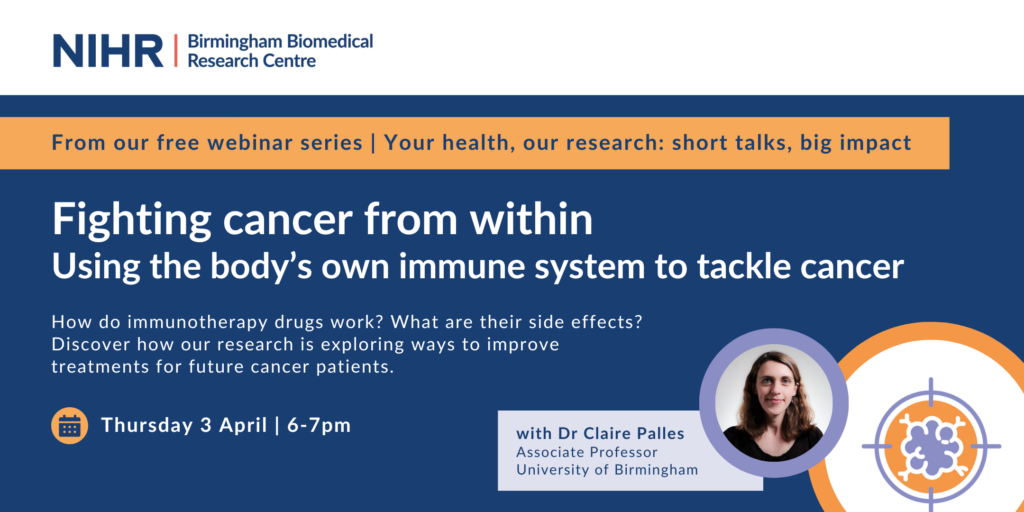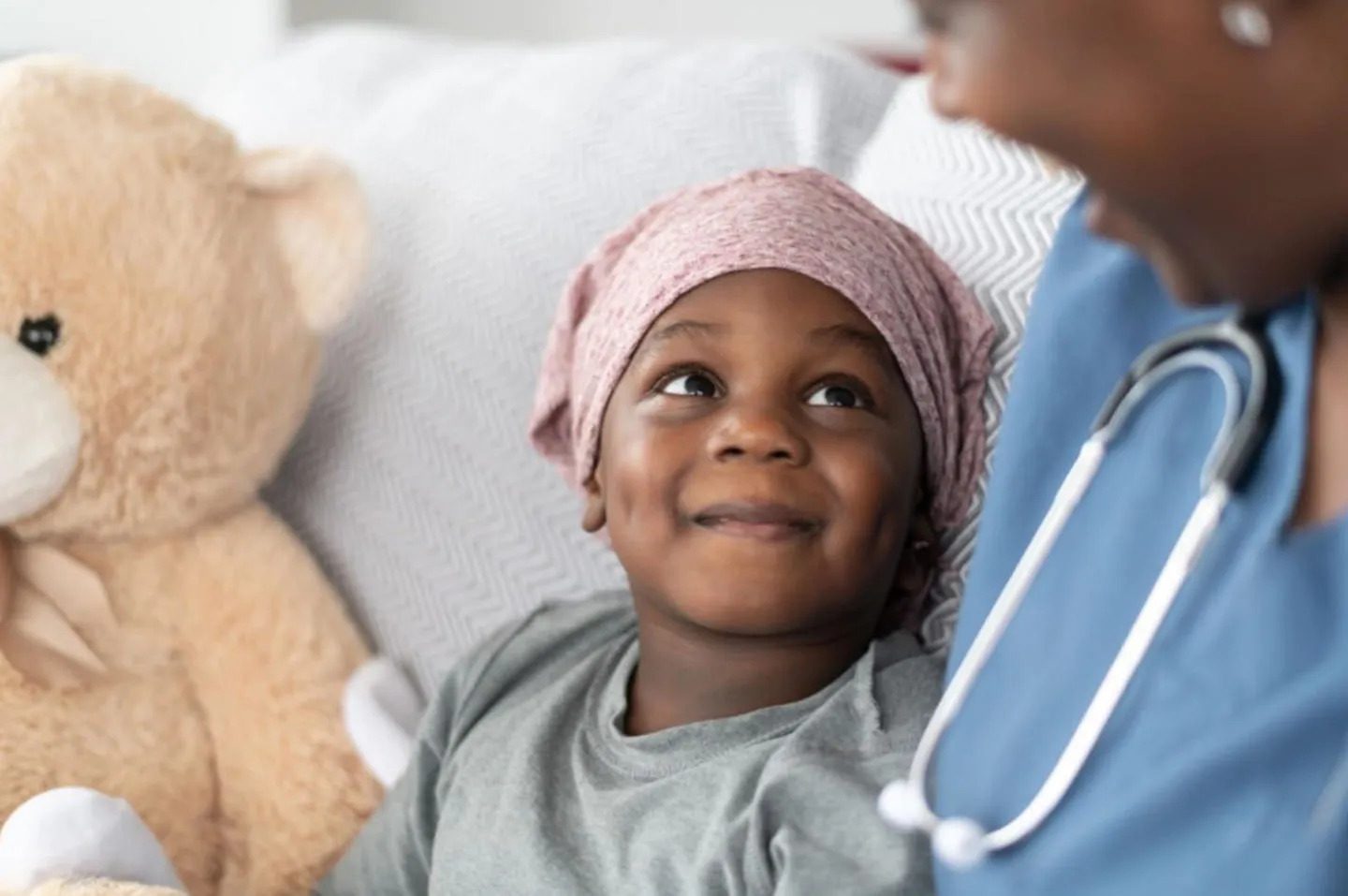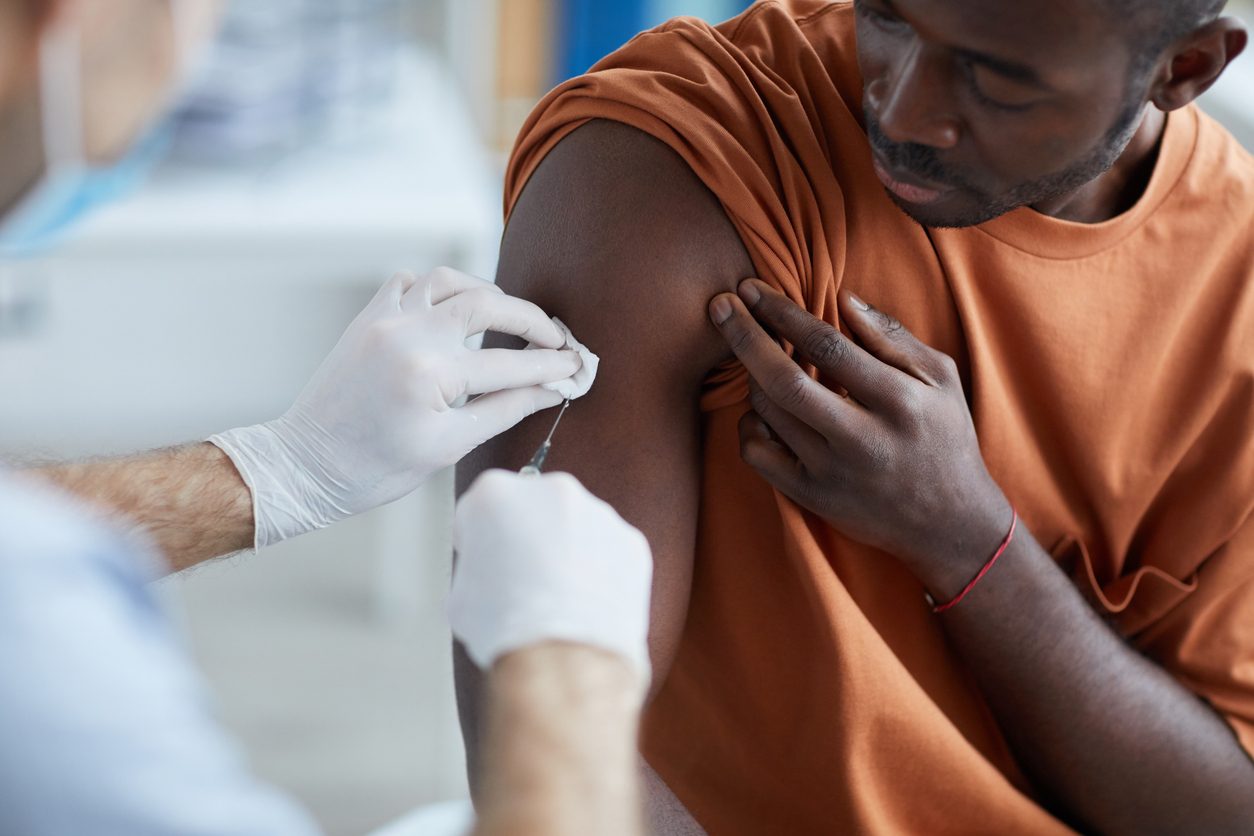Home » News and events »
Fighting cancer from within: Using the body’s own immune system to tackle cancer

How do immunotherapy cancer drugs work? What are their side effects? Catch up with this free short talk followed by Q&A to discover how our research is exploring ways to improve treatments for future cancer patients – no science knowledge needed!
Immunotherapy is a type of cancer treatment that uses the body’s own immune system to fight cancer.
Immunotherapy drugs aim to wake up the patients’ immune system to destroy cancer cells and are now given regularly to patients with lung cancer, aggressive skin cancers called melanoma and patients with other cancer types too. These drugs work well in many patients keeping cancer at bay, sometimes for many years. Unfortunately however, a large proportion of patients treated with these drugs experience serious side effects. These side effects can be hard to manage, affect patients’ quality of life and in some, rare cases, can be fatal. At the moment, it is difficult to predict who will experience side effects.
In this talk, Claire uncovered how immunotherapy drugs work, explored the common and rare side effects and shared how research led by the University of Birmingham is exploring ways to understand and reduce these severe side effects to improve treatments for future cancer patients.
This online talk is part of our free webinar series “Your health, our research: Short talks, big impact“

You may also like


